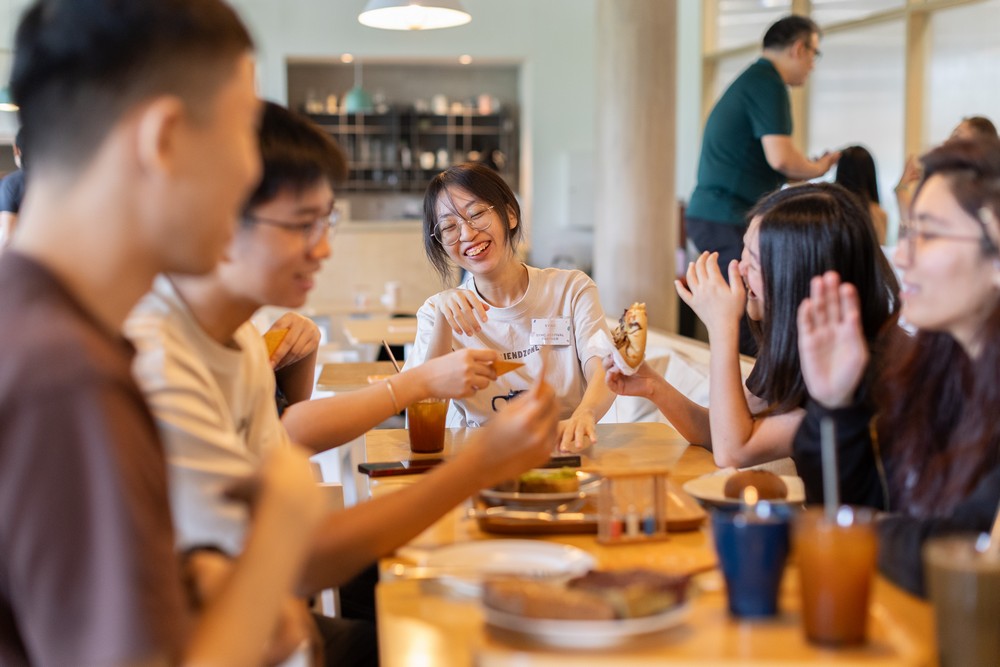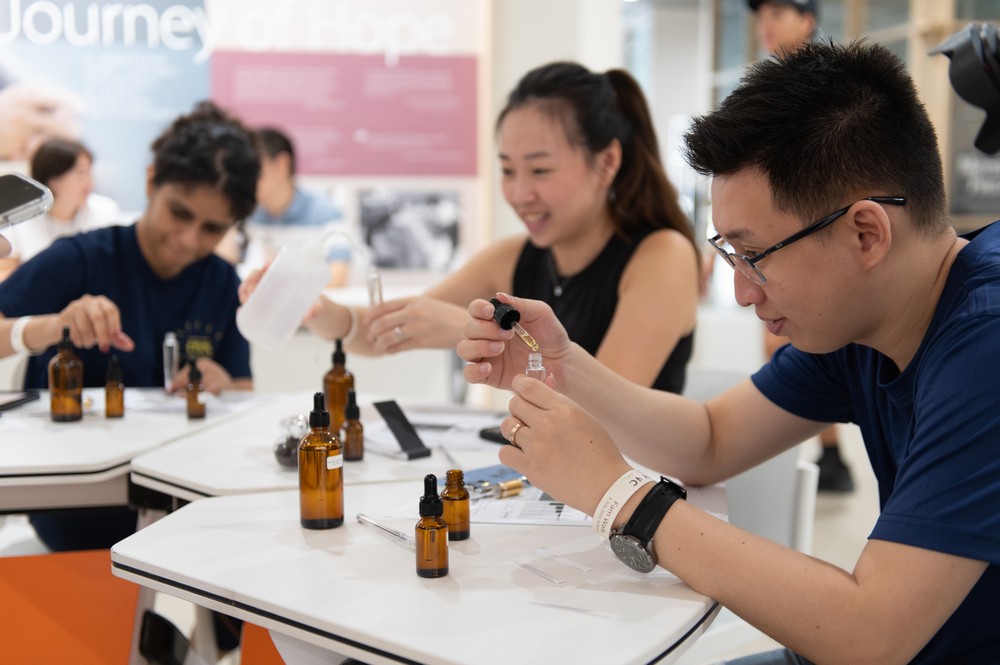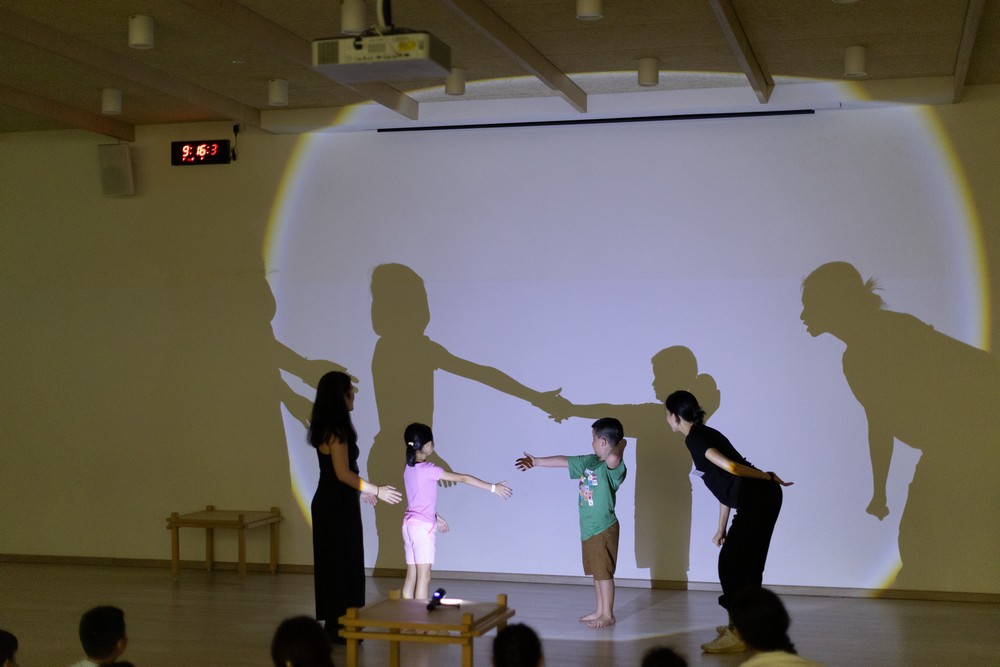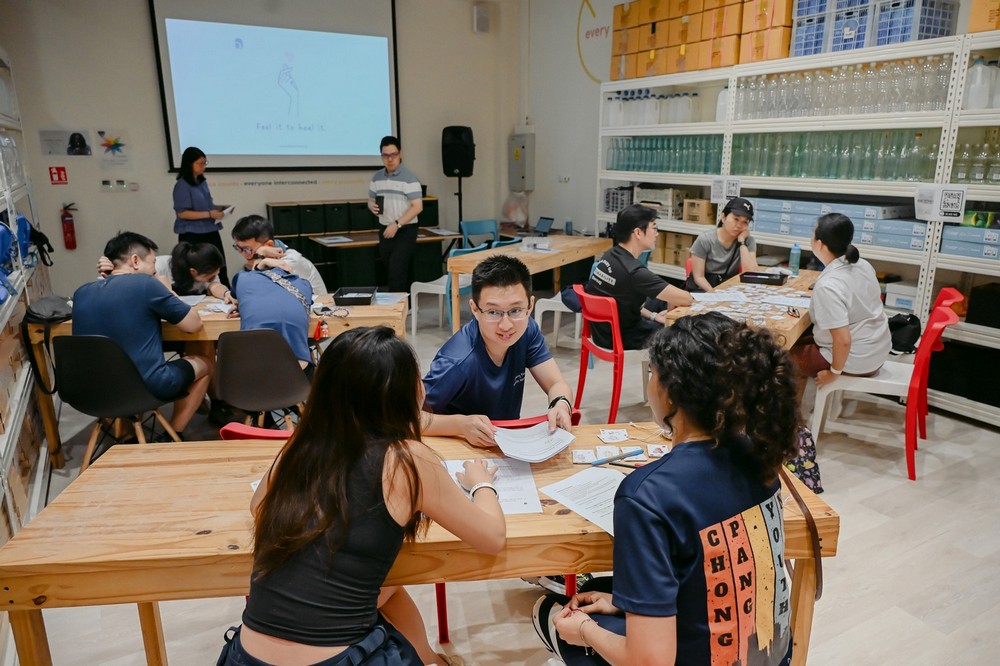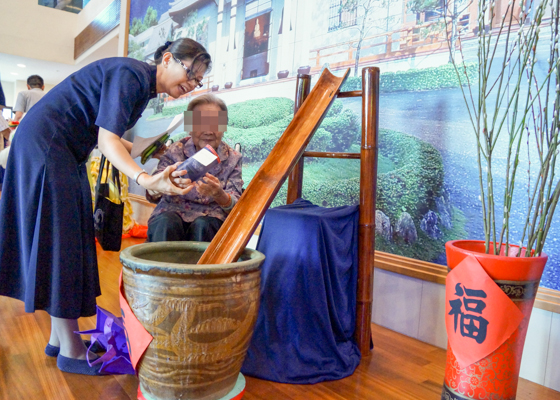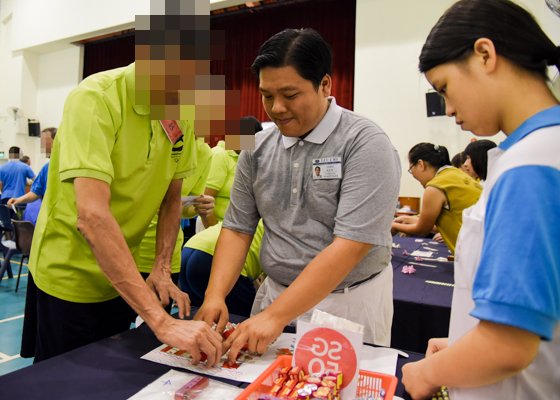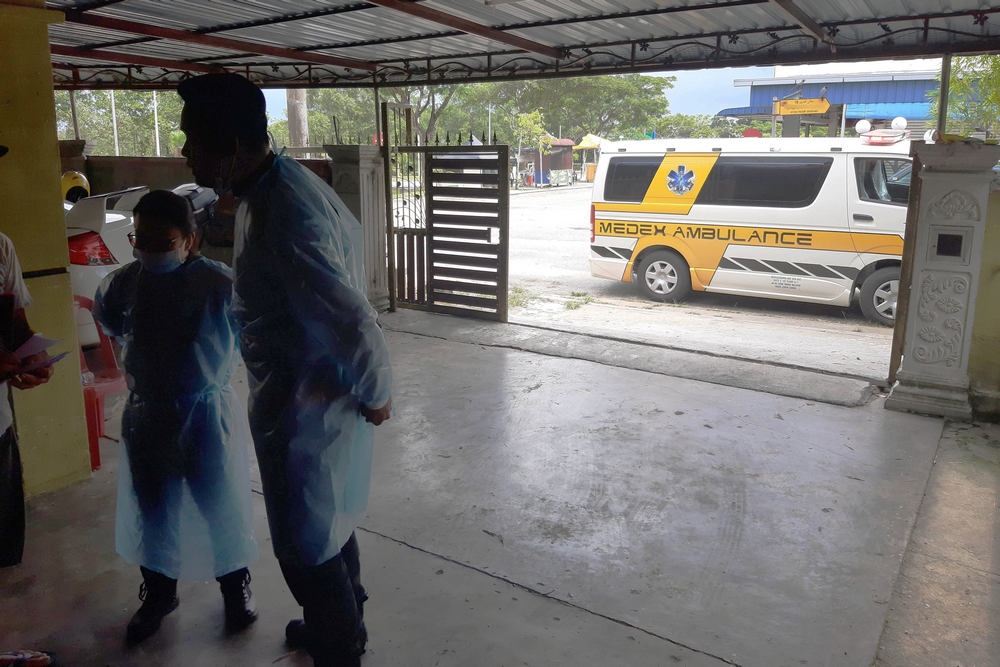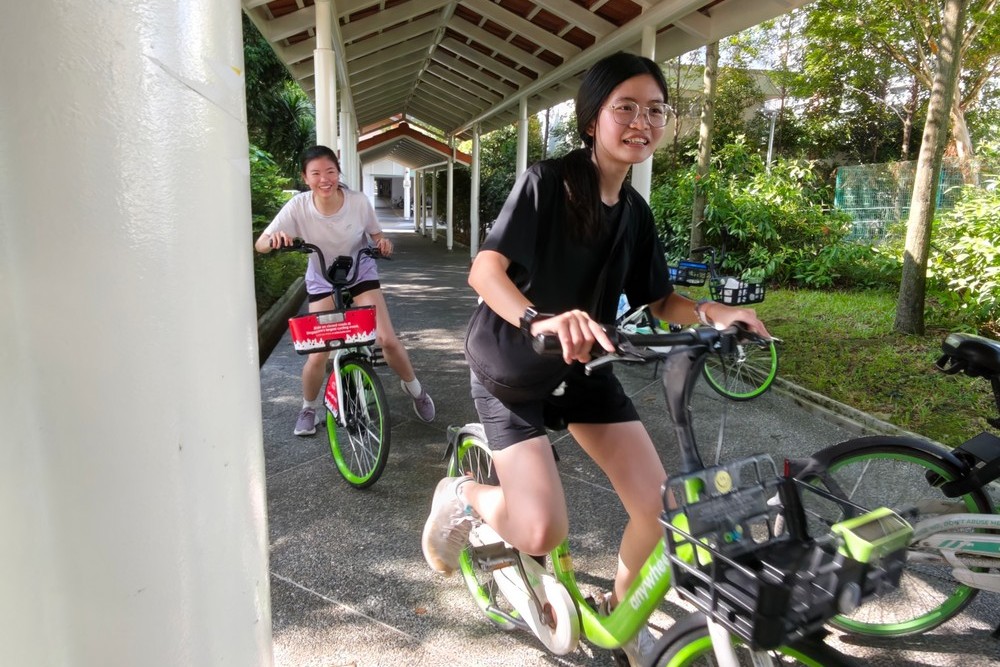 About a hundred youths aged 15 to 35 participated in the Youth Quest. After completing some high-intensity activities, they continued to explore the most suitable ways to recharge themselves. (Photo by Tew Yu Rui)
About a hundred youths aged 15 to 35 participated in the Youth Quest. After completing some high-intensity activities, they continued to explore the most suitable ways to recharge themselves. (Photo by Tew Yu Rui)
In this fast-paced and information-overload era, to many young people, 'rest' may just mean catching up on sleep after staying up late, mindlessly scrolling on the phone, or lying flat on the couch over the weekend but these methods often fail to truly restore energy, leaving people feeling even more tired afterwards.
Real rest is not about 'doing nothing', but consciously recharging the body and mind, nourishing and balancing various aspects of the self, including the brain, emotions, senses, body, social relationships, creativity and spirituality.
Stepping out of routine and restarting
On Youth Day (5 July 2025), Tzu-Chi Foundation (Singapore) held the first SYNC. Festival at Tzu Chi Humanistic Youth Centre. ‘SYNC’ is also an abbreviation for the English word 'synchronise'. Other than the Fam Walk that drew a thousand participants, about a hundred young people formed teams to participate in Youth Quest, taking on challenges that tested their physical fitness, intellect and teamwork. In addition, the Youth Centre also set up a ‘7 Types of Rest’ experiential zone that allowed youths to explore the most fitting ways for them to recharge after engaging in high-intensity activities.
99 youths aged 15 to 35 divided into 24 teams for an exploration competition and showcased their youthful vitality under the sun. They visited seven stations located around the Yishun community within three hours, tapping on their physical strength and intelligence to solve problems and overcome challenges. (Photo by Chai Yu Leong)
Two colleagues in their 30s came together for the SYNC. Festival. Celeste Koh shared that whenever she feels stressed, whether from work or family relationships, she usually watches movies to relieve stress. She also finds relaxation through meditation and by listening to healing sounds and music on YouTube.
After experiencing sound healing in person this time, she felt that the live vibration brought a completely different sensation from listening to pre-recorded healing sounds. “I feel more peaceful and there is this tingling sensation in my head as though I am being gently massaged. I find it really comfortable”.
Her colleague, Tan Chian Ying, shared that in face of pressure from work, she would usually just go to sleep. She said that she nearly fell asleep during the sound healing process because her mind was truly at ease.
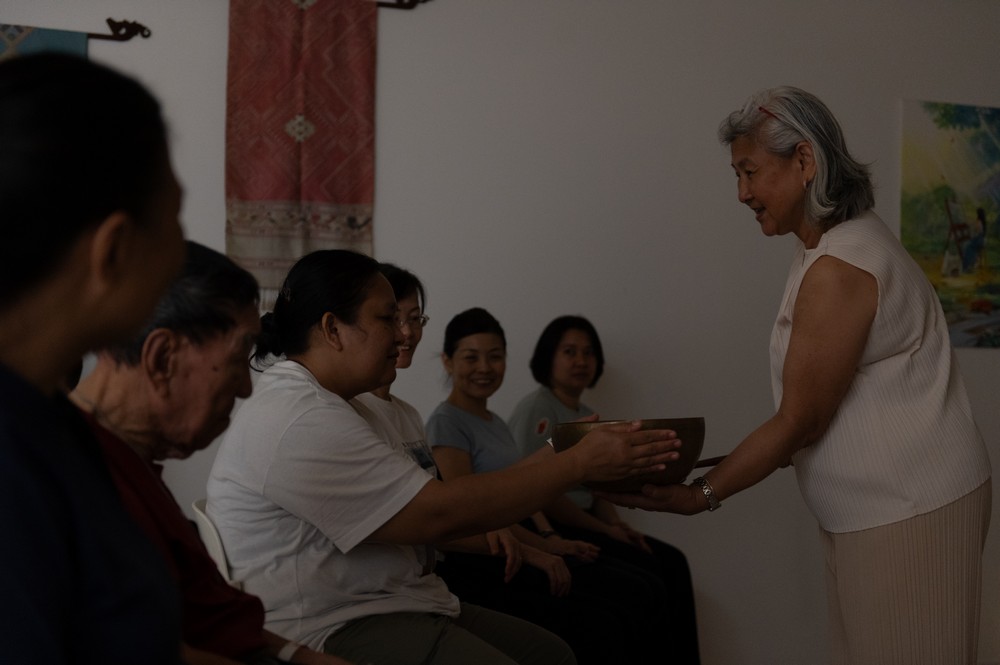 Our hearing is more acute in a dark environment. The therapy facilitator also invited participants to use their sense of touch to experience the resonance of singing bowls during the sound therapy. (Photo by Bong Kian Hin)
Our hearing is more acute in a dark environment. The therapy facilitator also invited participants to use their sense of touch to experience the resonance of singing bowls during the sound therapy. (Photo by Bong Kian Hin)
Learning to de-stress and embrace youth
"We were short of one person in our team, so the organiser arranged for a solo participant to join the three of us". Koh Wei Feng's team welcomed the new member, Chua Poh Lee (first from right in photo below). Though formed at the last minute, the team displayed great chemistry and complemented one another's strengths so well that they won the first place!
"The station games were very interesting, and we tried our best to score points. My favourite was the Giant Millionaire. The puzzles were meaningful, but the dice was so unpredictable. I thought I would do well but I ended up in jail instead!" Koh Wei Feng’s team described the tension in the competition which seems to reflect life's ups and downs with dark times followed by bright moments. After two hours of tackling the tasks, the group has made new friends and created beautiful memories together.
Chua Poh Lee (first from left) and Koh Wei Feng (second from right) and the others formed a team at the last minute and unexpectedly demonstrated great chemistry and complemented one another's strengths well. (Photo by Goh Shoo Weng)
"Young people typically face pressure from examinations. It is important to set schoolwork aside sometimes and find time to relax and connect with nature," said 16-year-old Lim Tzu Yue who invited her classmates and friends from tuition classes to form a team for the competition. "Really? Is it really us?" She was surprised when the emcee announced that her team had won the second place.
Her classmate, Soh Jia Jia who hardly engages in outdoor sports, agreed that it is necessary to take a break from a hectic schedule sometimes. "Too much pressure could numb the brain, causing our attention to slip. It would be better to maintain a calm mind so that we could truly focus and become more efficient". She recalled performing mindfulness exercises during recess in primary school and felt that the practice resonated with the seven types of rest learnt on this day. She expressed her hope to continue learning more about these methods in greater depth.
16-year-old Lim Tzu Yue (second from left) invited her classmate, Soh Jia Jia (third from left) and friends from tuition classes to challenge themselves by taking part in the Youth Quest. (Photo by Phang Wei Wan)
Seven restful experiences to care for yourself
According to the 2024 National Youth Mental Health Study (NYMHS), about one-third of young people aged 15 to 35 reported experiencing severe or very severe symptoms of depression, anxiety, and stress.
The Tzu Chi Humanistic Youth Centre has long focused on the physical and mental wellbeing of youth. Since 2023, it has been promoting the concept of the "7 Types of Rest," which has received a fairly positive response from young people. The "7 Types of Rest" was proposed by American physician Dr. Saundra Dalton-Smith, who explains that human fatigue cannot be resolved by sleep alone. She highlights that deeper levels of fatigue exist, affecting the psychological, emotional, sensory, and various other aspects of a person.
This year, through the SYNC. Festival, more professional partners were invited to participate and provide a one-stop, immersive experience of the “7 Types of Rest” free of charge to all participants. These seven types of rest include: physical, mental, emotional, sensory, social, creative, and spiritual rest.
The non-profit organisation SixSeconds was invited to host the Emotional Rest workshop. Its Social Impact Manager, Khoo Yin, prepared a wealth of emotional intelligence management toolkits for the participants, each featuring cute cards that piqued their curiosity. Inner emotions are invisible and intangible, so how can we learn to befriend them?
"Every emotion is a natural signal and revelation that helps us make more effective decisions every day,” Khoo Yin said. "Instead of suppressing, avoiding, or controlling our emotions, we can create a space for us to be with our emotions by taking a break or pausing." She also added that we can choose different behaviours - whether to fight violence with violence, to make peace, or to seek help - and every decision requires a clearer awareness, so that external actions resonate with our inner truth.
This activity taught me how to identify the ‘monsters’ within me,” shared Vibha Prashanth. Surrounded by gentle music and a variety of cards, she explored her inner emotional landscape and gradually drew the "monster" that represented her feelings. These unpleasant emotions were not labeled as right or wrong. Instead, she began a deep dialogue with them—learning simple yet effective emotional intelligence tools: pausing before reacting, recognising emotions accurately, and expressing them authentically.
"For example, the frustration that I felt. The facilitator's questions helped us analyse in depth why we had such reactions and thoughts. Behind these emotions, there are actually reasons and stories worth exploring."
Vibha discovered that rather than viewing these emotions as negative or undesirable, it's better to view them as a self-protection mechanism. "For example, if I feel frustrated, I might be protecting myself—when I fall short of my goals, if I choose to stop trying, I can avoid further frustration. So, we procrastinate because even if things don't improve, we won't have to face the disappointment of failure. This made me realise that frustration isn't a big deal. We don't need to view it as a 'bad emotion'; instead, we should learn to accept and understand it."
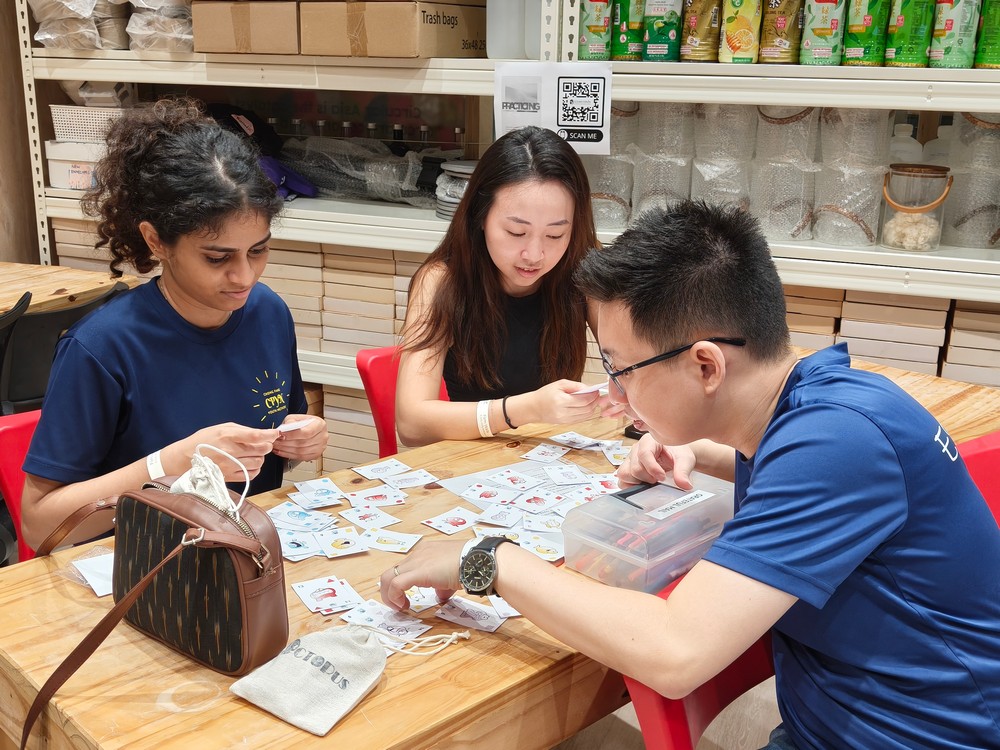 Vibha (first from left) discovered the source of her frustration through the "Emotional Rest" workshop. Instead of viewing her inner emotions as negative or bad, she learned to view them as a self-protection mechanism and learn to live with them calmly. (Photo by Ng Hock Soon)
Vibha (first from left) discovered the source of her frustration through the "Emotional Rest" workshop. Instead of viewing her inner emotions as negative or bad, she learned to view them as a self-protection mechanism and learn to live with them calmly. (Photo by Ng Hock Soon)
As a volunteer with the Chong Pang Youth Network, Vibha attended the SYNC. Festival with two friends. She experienced both the Mental Rest and Emotional Rest zones and realised that by taking good care of herself first, she would be better equipped to care for the people and responsibilities around her. Reflecting on the experience, she shared, "This method was truly effective. The facilitator was very professional, and we felt relaxed and at ease throughout the entire process."
Hsu Che Wei, manager of the Tzu Chi Humanistic Youth Centre, explained that the Youth Centre's vision is to "create a humanistic space for caring for oneself, others, and the planet”. Hence, sustainable wellbeing is the core value promoted and implemented by the SYNC. Festival.
He said, "Today's youth often lose their direction due to confusion and frequent job changes, like leaves drifting in the wind. Through SYNC. Festival, we hope to guide young people towards mindful living and find the life they truly want."
For more content on SYNC. FESTIVAL:
SYNC. Festival Photo Album (2025)
SYNC. Festival Behind-the-Scenes (2025)

